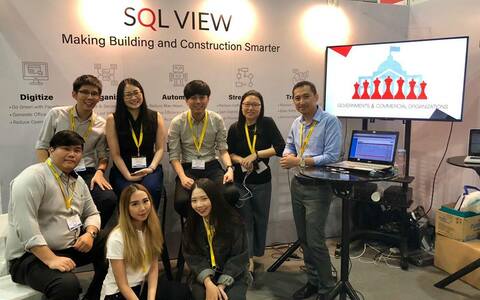We have discussed artificial intelligence several times within RedmineUP. At first, we thought that this hype about the GPT chart would not affect our products, but over time it became clear that it would affect everyone.
First, the marketing department received ChartGPT, which improved performance metrics for content generation. The second was the customer support team and account managers, who started using auto-response generation tools like Gemini, Read.ai, and Deepl to communicate with foreign customers.
It was also the turn of the development department, which started to work on training the artificial intelligence on the large amount of data that RedmineUP had accumulated over 10 years. We recently held a rally to generate ideas on which RedmineUP plugins could be most useful.
This article aims to explore the most promising applications of artificial intelligence technologies that are likely to be implemented within the next two years. We welcome feedback or suggestions for alternative approaches. Some of these applications are already being tested in experimental mode on the RedmineUP cloud platform.
.
From this article, you will learn the following:
- How to adopt AI for content generation?
- How to integrate AI into your customer support strategy?
- How to utilize AI to enhance customer feedback?
- What AI tools do we use at RedmineUP?
Gartner’s research indicates that change is coming soon, predicting that by 2030, 80% of project management tasks will be run by AI, powered by big data, machine learning (ML), and natural language processing. A handful of researchers, such as Paul Boudreau in his book Applying Artificial Intelligence Tools to Project Management, and a growing number of startups, have already developed algorithms to apply AI and ML in the world of project management. When this next generation of tools is widely adopted, there will be radical changes.
AI-Powered Project Management with Redmine
The Harward Business Review article identifies 6 aspects of project management that are being disrupted. While automation has been a staple of project management for years, AI brings a new level of intelligence and adaptability. The AI assistant will go beyond simply automating tasks:
- Predict future trends. By analyzing historical data, AI can identify patterns and anticipate potential bottlenecks or risks.
- Optimize resource allocation. AI can suggest optimal resource distribution based on task complexity, team member skills, and project deadlines.
- Improve decision-making. AI-powered analytics can provide valuable insights to help project managers make data-driven decisions.
- Enhance collaboration. AI can facilitate communication by suggesting relevant information, summarizing discussions, or even translating between languages.
Let's explore the potential use cases for AI integration into Redmine. We'll start by discussing the initial steps that could be incorporated into everyday Redmine workflows.
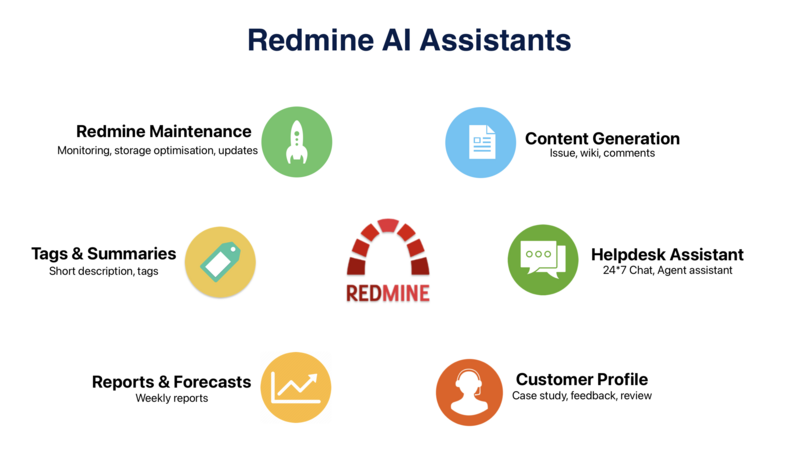
Content generation at Redmine
Let's look at where content creation happens in Redmine and where an assistant can take over the routine part. During issue creation, there are a few possible operations to implement AI:
- summarize a long text;
- create tags;
- suggest subtasks;
- translate;
- spell check;
- create a checklist;
- create a wiki page based on the topic;
For example, here is the prompt to create an SLA checklist for a Redmine maintenance contract.
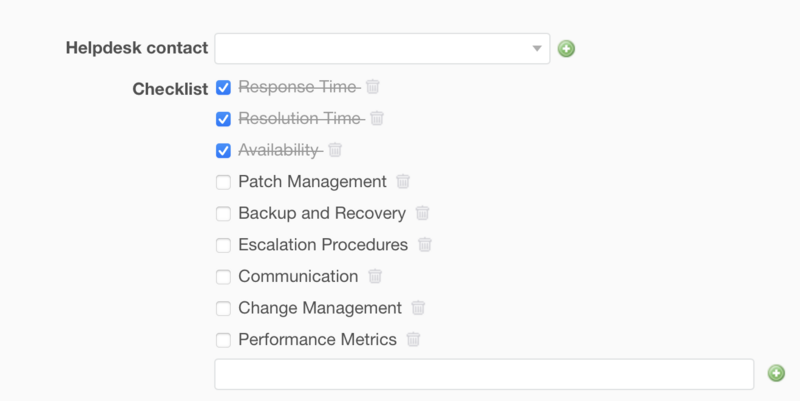
Another example is the automatic creation of tags (free Redmine plugin) based on full issue text. Extracts keywords and phrases that describe the issue's core topic.

Redmine Helpdesk Assistant
The integration of AI into project management also has significant implications for customer support. With the Helpdesk plugin, you can set up a traditional customer support process. The regular workflow is that each incoming ticket comes to an assigned agent and, at some time, gets closed or transferred to another level of support. It takes about 24 hours to get the first answer and about 3 days to resolve the issue. In the last article, we discussed how to scale collaboration inside Redmine.
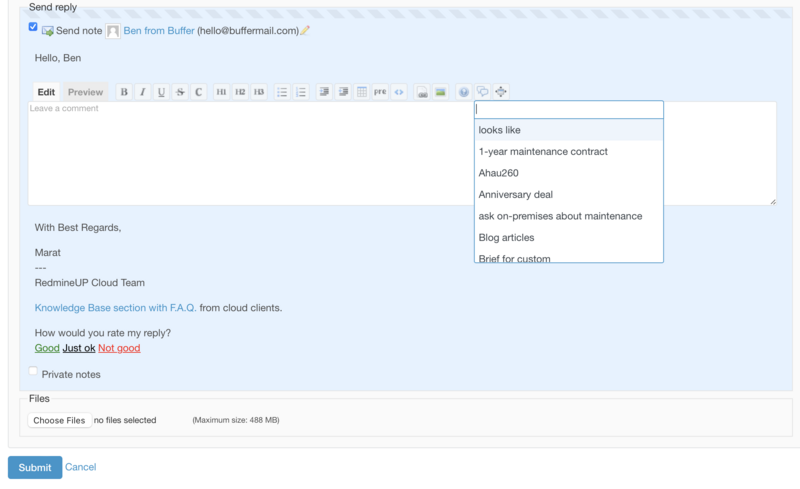
So the point is that your AI can suggest some response templates to you for exactly that request. You can select, edit, and send them. That's the first step. The next step will be an AI-based chatbot. Since then, technology has gained popularity worldwide, and businesses have realised its potential. Chatbots like ChatGPT have been integrated into many customer service processes.
It also overcomes language barriers with instant translation capabilities to provide multilingual support. This allows companies to maintain a global audience without expending significant resources to create multiple customer service teams to target specific regions. Right now at RedmineUP, we use Deepl to translate answers to a necessary language. There is an outstanding mode for answer optimisation - "Write".
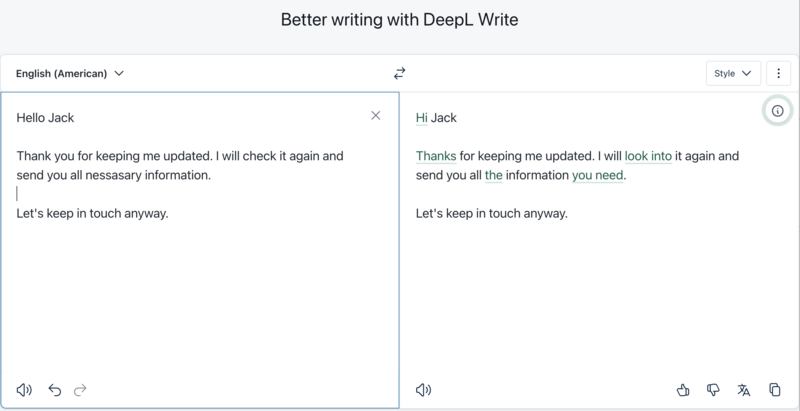
You can use Gemini by Google to generate answers if you need more specific or concrete information:
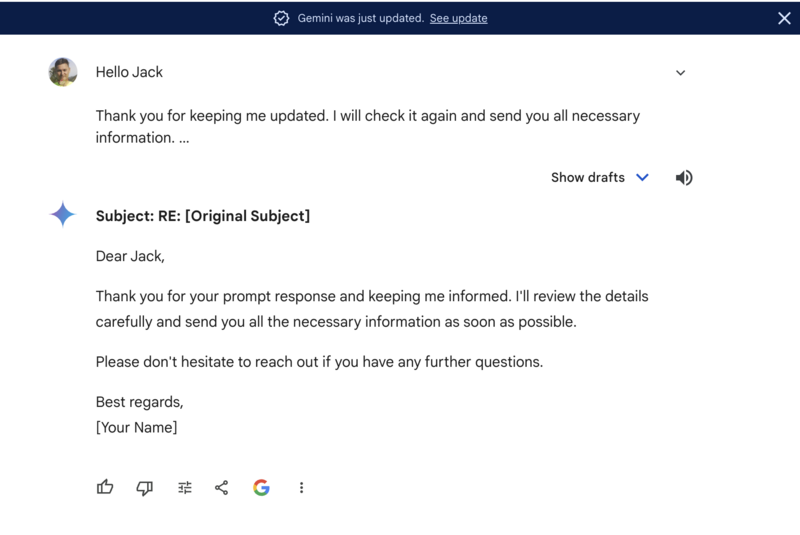
One of the most important customer support benefits of AI is the provision of 24/7 support. This 24/7 availability meets the modern customer's expectations for immediate and efficient service. The ability to provide continuous support ensures that the customer receives assistance at all times.
AI's ability to handle routine inquiries frees agents to focus on more complex and strategic tasks. AI can increase agent productivity by performing routine tasks such as greeting customers or answering frequently asked questions.

A key benefit of AI is its ability to continuously learn from customer interactions. This constant learning allows AI to refine its responses, adapt to changing customer behavior, and stay on top of the latest trends.
This adaptability ensures that AI tools remain relevant and effective as customer behaviors and preferences change. This continuously improves the customer service experience.
Now that we've looked at the benefits of AI for customer service, let's look at the different ways it can be used in business.
Migrate to secure hosting
Don't waste your time on Redmine maintenance. Hire experts and focus on your projects
Virtual product assistance AI acts as a digital guide to help customers understand product features and troubleshoot issues, ensuring a seamless experience. Such assistance is particularly useful for complex products or services where customers may require additional support to fully utilise them. This virtual assistance enhances customer service by providing prompt and up-to-date information. It also reduces the workload of customer service agents by handling general inquiries.
Migrate to secure hosting
Don't waste your time on Redmine maintenance. Hire experts and focus on your projects
Self-service portals Traditional self-service portals (Redmine Questions Plugin) are designed to reduce the workload of agents. The difference is that traditional portals require customers to either navigate through a multi-level chat menu or enter a query using the exact keywords needed to get a response. AI-powered self-service portals are able to understand a wide range of queries without requiring the customer to use the right keywords.

Gathering Feedback and Customer Profile
A user case can be created on the basis of the feedback. You can send a series of clarifying questions to the customer in the form of a survey and generate a testimonial based on the answers.
The information obtained can be used for product development, improving the sales funnel, or publishing on the company blog. Instead of 3 weeks of painstaking work, it is now possible to collect and generate feedback in 1 day from any customer who has a history of requests. Moreover, artificial intelligence can gather more information about a company from LinkedIn and the Internet. A short description of the customer profile can be automatically added to CRM plugin notes as well as tags.
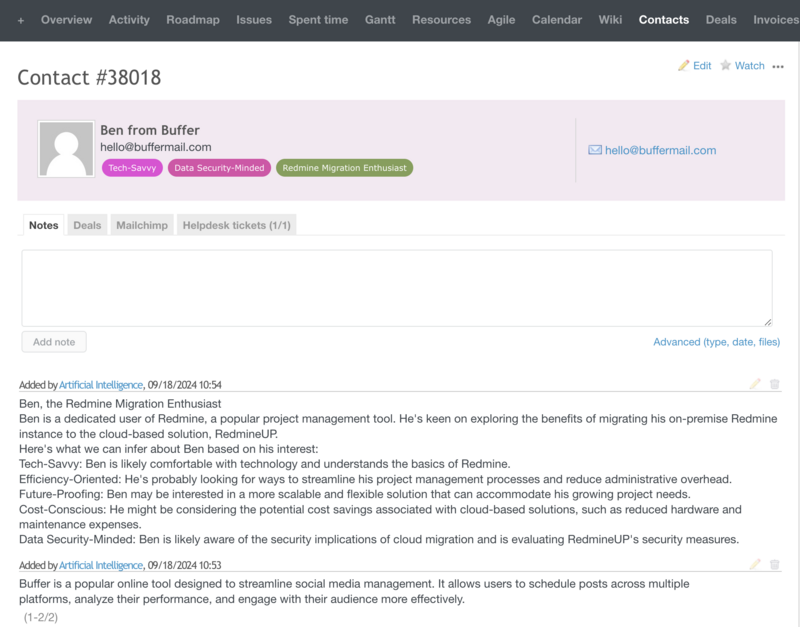
RedmineUP has begun collecting and generating feedback through various methods. This data is particularly valuable for creating user segments and developing detailed user profiles. From a practical standpoint, user case studies can be a powerful tool for potential customers. For instance, if a US-based customer in the medical industry inquires about help desk automation, Redmine implementation discussions could be enhanced by sharing relevant user cases from that specific industry and geographic region.
As a result, more relevant and contextual information shows the value of RedmineUP to a specific user. At RedmineUP we understand that for the subscription model, it is the delivery of value to the customer that is relevant, not the one-time sale of access to the platform.
In the initial experiment, an account manager selected a client who had successfully migrated to the platform. Using ChatGPT, the manager analyzed the support manager's correspondence with this client to identify key issues, challenges, and the final user experience. The reconstructed history was then shared with the client for verification. Based on their feedback, necessary adjustments were made and incorporated into the platform development team's work
During the second phase, we developed a questionnaire for clients. By feeding their responses into ChatGPT, we were able to conduct more in-depth interviews. This approach yielded more informative customer stories and accelerated agreement on project scope. We reduced the time to produce a customer story to 3-4 days and plan to gather as many stories as possible to gain a deeper understanding of our cloud customers' needs. Read the case study on how Crevier Group, a company based in Canada, leveraged RedmineUP Cloud to streamline their project management processes and improve team collaboration. This case study was written based on a history of communication with this customer.
Our next phase involves training AI to assist potential customers in transitioning from on-premises servers to cloud hosting. This includes guiding them through data migration, plugin configuration, backup generation, and answering common customer inquiries.
AI Reports
RedmineUP utilizes weekly meetings to establish plans and track task progress. Team members provide updates on their accomplishments and upcoming goals. By analyzing employee report forms, it's evident that AI could soon automate this process with a simple prompt: 'Please generate an employee performance report for the past week'.
The expected answer could look like this:
Trevor Jonson had a very successful week. As a presale manager, he closed 3 deals for 3400 in revenue. This is 12% better than his usual performance. The average customer satisfaction rate was 90%, which is better than other managers. He creates 5 new opportunities with customers from 3 countries. The potential revenue for next week could be $2900. He spent about 18 hours in Redmine and closed 16 issues out of 18. Note that in 10 days he will be on vacation for 7 days.
Just imagine that such a report can be generated and sent to the manager's mail automatically at the end of the week.
AI Redmine maintenance
Finally, we assume that AI can be implemented for Redmine maintenance and administration. Who will remind me to update the SSL certificate for the domain? Who will remind me to update the new version with security patches, and who will monitor the storage of Redmine on the server? Who will create an SLA contract according to technical requirements? Why is it not your Redmine wizard for local installation? Just a few weeks ago we described the process of Redmine upgrade and highlighted a scope of work for Redmine maintenance.
But it looks like that's the next part of the story because we need to make sure that AI implementations are compliant with privacy regulations and protect sensitive information.
Explore our selection of top-tier AI solutions that can streamline your Redmine workflows and boost productivity:
1. ChatGPT
2. Gemini
3. Deepl
4. Read.ai
5. Grammarly
6. Jasper
7. Notion
We will keep you updated on Redmine's new era of digital transformation. Stay tuned and share your favorite AI tool for everyday use.

